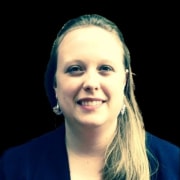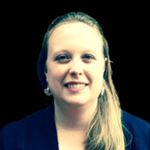Trends and insights to advance One Water and become fit-for-future.
1. WateReuse leaders shared insights on addressing global challenges
Water reuse leaders shared their inspirational career pathways that have allowed them to contribute to water reuse in a meaningful way. Leaders agreed that water reuse will continue to grow in the U.S. and globally and that the private sector will continue to play a pivotal role in sparking that growth. Arcadis’ Global President for Resilience, Heather Polinsky, discussed the important role of Environmental, Social, and Governance (ESG) Criteria in managing climate change and water resources. One Water and water reuse will be a critical part of the solution to becoming more fit-for-future.
2. One Water is providing an opportunity to build a better future for our communities
We see increasing acceptance of water reuse across our industry and in our communities. In the face of increasing demand, our conventional water supplies are increasingly stressed and less reliable due to climate change, extreme weather events, and urbanization. However, these challenges bring opportunity for innovation and diversity. We see more communities judging water by its quality or treatability, not its origin. This evolution creates opportunities for developing solutions which are resilient and equitable for all. Agencies such as Las Virgenes Municipal Water District, Triunfo Water & Sanitation District, City of Santa Monica, City of Los Angeles Sanitation, Hampton Roads Sanitation District, and Metropolitan Water District are already embracing One Water, and many other communities will be on this path soon.
3. Successful projects begin with effective community engagement and education
The evolution of treatment technologies, monitoring and control strategies, regulatory frameworks, and acceptance of alternative water supplies have opened the doors for potable reuse projects; however, solutions must be driven by the unique challenges of each community. Further, those unique challenges can only be truly learned by listening to representation from all voices in a community. This kind of early and effective community engagement and education leads to public trust and long-term support of potable and non-potable reuse projects. The success of Boise’s Recycled Water Program showcases the benefit of effective community engagement.
4. Artificial intelligence, machine learning, and predictive analytics will enhance the implementation and efficiency of reuse applications
Data-driven intelligent applications are gaining traction for good reason. Harnessing the power of artificial intelligence algorithms and data analytics will shatter the silos of traditional water networks and facilitate broader implementation of water reuse and One Water initiatives. Actionable data exposes opportunities to combine strengths, aids decision making, enhances asset management capabilities, and reduces operations and maintenance costs. Data analytics will also provide greater understanding of data, ultimately informing future regulations as well as continuing to build trust in water reuse. The innovation of how we collect, manage, understand, and communicate data will make water reuse projects more resilient and affordable.
5. Face-to-face interactions spark meaningful connection and collaboration
The Water Reuse Association has done a terrific job successfully managing the 2020 and 2021 Symposiums in a virtual platform, but something was clearly missing – face-to-face interaction. Throughout this year’s conference, we cemented existing bonds and forged new relationships with the broader water reuse community. We were inspired by the work and experiences shared by local communities in Texas and had meaningful conversations during the social event at the Knibbe Ranch. We will carry this reinvigoration forward, creating a launchpad for our next wave of water reuse and ultimately, fit-for-future, success.
What’s next for reuse?
The symposium was an invigorating look into the future. Reuse continues to be an important strategy for our collective resilient water future. Expansion of reuse applications will be fueled by One Water implementation, innovative technologies, alternative delivery methods, community engagement, funding opportunities, and new partnerships.
Where challenges lie, opportunities for innovation arise. In the coming years, we will see more sophisticated approaches to managing advanced treatment systems, larger data pools, greater community engagement, and an evolving workforce. These new tools will unlock One Water solutions, optimize operations and maintenance, create transparent and defendable spending programs, and result in a heightened ability to deliver outstanding customer service. We will see more communities becoming fit-for-future.
Connect with me (Ufuk) on LinkedIn if you want to hear more about how the fundamentals of fit-for-future water utilities can bolster your reuse strategy. Connect with me (Ashley) on LinkedIn if you want to hear more about how holistic water resources planning, or One Water, can build a foundation for a resilient water future. Also, be sure to check out our interactive web experience and podcast series for deeper dives into each fundamental component of being fit-for-future.
About the authors
Ufuk Erdal, PhD, PE
Water Reuse Director
Ufuk has led the planning, pilot testing, design, commissioning, and delivery of more than 50 potable and non-potable reuse projects serving municipal and private clients in the U.S., Australia, Brazil, Argentina, Saudi Arabia, and Taiwan. He has evaluated the pathogen removal capabilities of MBR systems in two full-scale MBR facilities in Nevada. That work resulted in the first regulatory pathogen credits toward MBR systems in the U.S. and has become the initial step for developing a regulatory framework for getting pathogen credits for MBR systems in California. Dr. Erdal is currently working with his team to develop sustainable water reuse solutions using artificial intelligence, machine learning, and predictive algorithms.
With more than 75 journal articles and conference proceedings, Ufuk has contributed to California’s direct potable reuse framework and is helping Georgia develop its own. Ufuk has served at the Water Research Foundation Board of Directors between 2017 and 2020 to develop sustainable and cost-effective water management solutions using advanced research.
Ashley Evans, PE
One Water Practice Leader
Ashley manages water optimization projects across North America. Her One Water perspective drives from helping communities to optimize water throughout the water cycle, from watersheds to homes and back to the watershed. She leads watershed protection, stormwater management, and water supply planning projects. She has expertise testing, planning, and implementing water treatment optimization, including for treatment of emerging contaminants, such as nitrosodimethylamine. She also helps communities with optimizing their distribution systems, including water quality, non-revenue water management, and infrastructure optimization. Ashley has supported communities with maintaining regulatory compliance and conducting education and outreach programs. She’s also researched alternative water supplies as well as led projects implementing innovative water management strategies, such as aquifer storage and recovery.
Ms. Evans is the Chair of the AWWA Biological Treatment Committee and is co-leading development of a new AWWA Manual of Practice. She recently received the AWWA 2021 Golden Spigot Award and the AWWA 2022 Top 5 under 35 Award.





